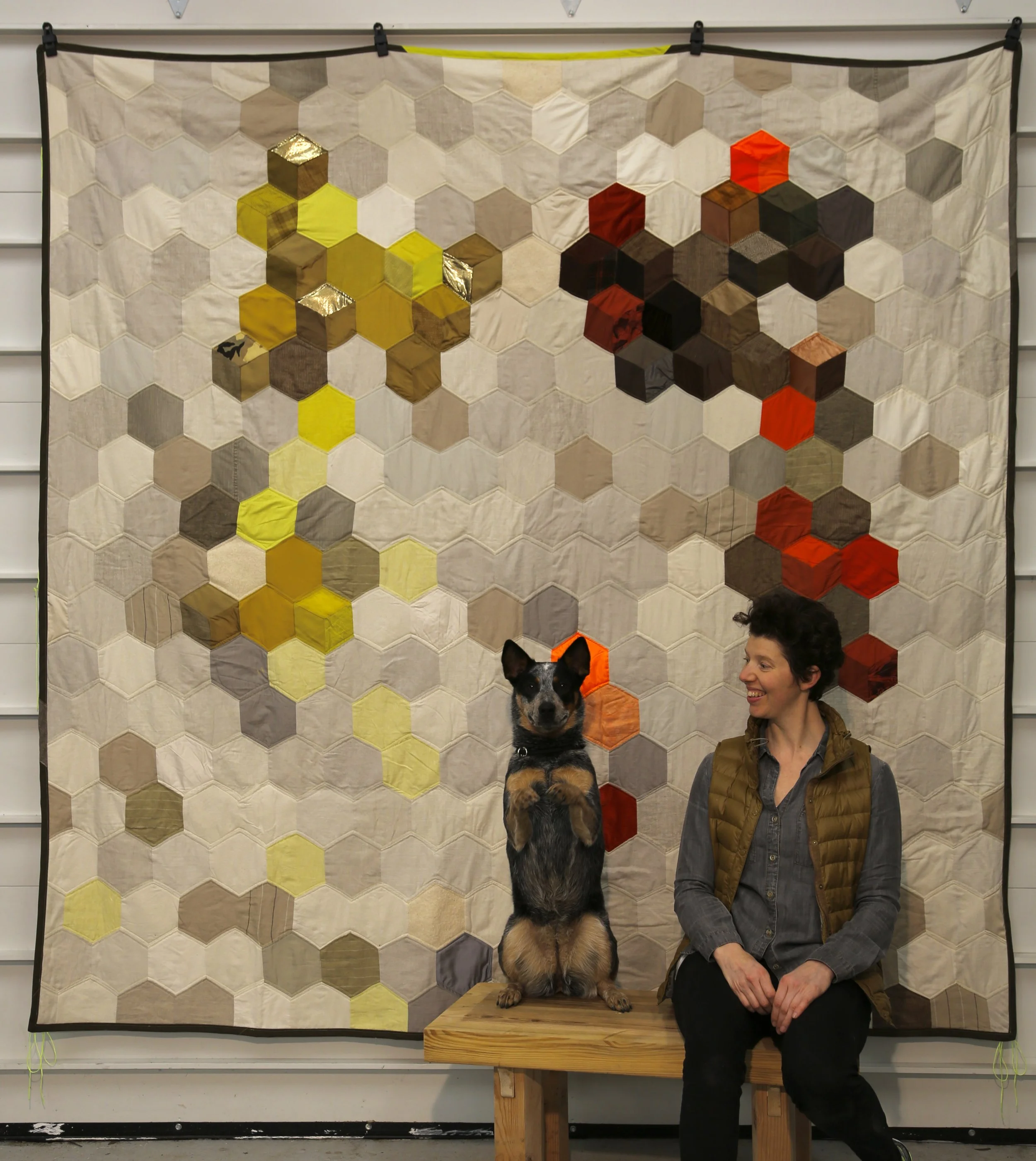About
Part collector, part craftsman, part designer, Abigail Newbold utilizes a domestic vocabulary to create objects and installations that examine issues of comfort, and portability, ultimately advocating for the continuation of traditional skills as necessary for survival. Born in Boston, she received her BFA from Massachusetts College of Arts and her MFA in Fiber from Cranbrook Academy of Art. Newbold, whose work has been published in both Dwell and American Craft, exhibits internationally and continues to collaborate on local design-build projects as well as fostering commissions for both quilts and furniture. She has taught at the College for Creative Studies and the Haystack Mountain School of Craft in Maine while working as the Director of Exhibitions and the Institute of contemporary Art/ Boston. She is an inaugural recipient of a Kresge Emerging Artist Fellowship and residencies at MacDowell and Sculpture Space. She currently resides by the sea in Hull, Massachusetts.
Artist Statement
I am interested in cognitive and kinesthetic understandings of home, and the tempting notion of learning to provide shelter for myself in an increasingly more complicated superstructure of society.
Straddling the vestiges of traditional craft, DIY design sensibilities, and the beginnings of an anthropological survey of domesticity, my work illustrates in physical dimensions a conflict in how we live. We are at once torn between an increased availability and reliance on the product market, and a desire for more personalized living. As function and utility are spoon-fed to us, what happens when we look critically at the building blocks of our homes and our home tools—those essential instruments that ultimately help to define the character of our spaces? What happens if we leave the fold of the big-box-store and we begin to craft our own tools and build our own homes? How would our relationship with our homes change?
Created from financial necessity and paired with our inescapable human need for shelter to survive, I find irony in this era of exponential new technologies that there are also opportunities for individuals to be self-sufficient. We could at once be entering an era of folk architecture- changing the monotony of the store-bought landscape, and in the process be reviving basic skills of hand-making integral to survival and creativity and this excites me.
